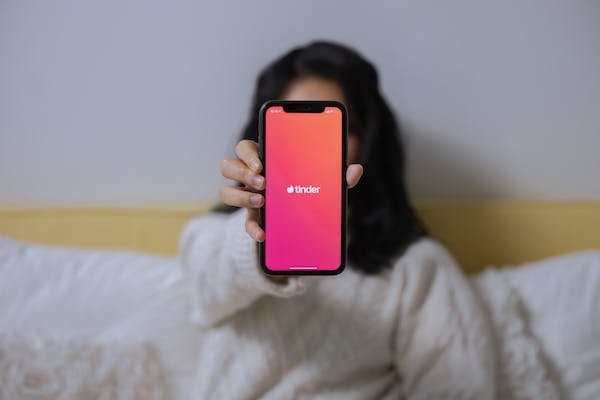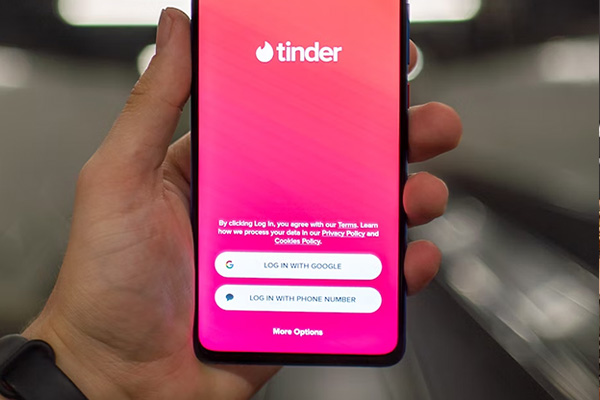

Did you know that sating apps are mining your data? Why? Their business models rely on the information you provide to determine matches and ads.
RELATED: HOW TINDER & FACEBOOK WORK TOGETHER
Well, it’s really hard to know how apps like Tinder and OkCupid choose your suggested matches. Their proprietary algorithms are kept secret from both us and their competitors.
However, disclosures and data privacy laws like the EU’s GDPR give us some insight into how they work. Whether these algorithms are better than real-world matchmaking is still up for debate, though 30 percent of US adults have tried these platforms at least once.
HOW DATING APP ALGORITHMS ACTUALLY WORK?
Whatever data you share with a dating app or site, dating app algorithms now have it. This can include your gender, sexual orientation, location data, political affiliation, religion, and any photos or videos you upload.
They might use AI to screen these images, like Bumble does to block lewd content. If you link social media accounts, dating platforms can access data from there too.
Like, Guardian journalist found that Tinder had 800 pages of her data, including Facebook and Instagram activity, and conversations with matches.
Dating platforms, whether app-based like Hinge or site-based like Match.com, collect a lot of your data. They also work with third-party services that receive information about you. For example, data trackers can pick up the URLs you visit and use this for analytics or targeted ads.
In 2018, Grindr admitted that two companies accessed users' HIV status. OkCupid and Tinder have shared users' data, including political views and ethnicities, with a service called Braze.
The result? Dating app algorithms are making it easier to find someone on dating sites even without signing up!
ANY SECURE DATING SITES?
Several years ago, experts researched nine popular dating services and found significant issues with data security, storage, and accessibility. Key threats revealed included:
- Six of the nine apps did not hide user locations.
- Four exposed users' real names and linked social media accounts.
- Four allowed interception of sensitive data.
In 2024, the Kaspersky team revisited the study with nine popular apps: Tinder, OKCupid, Badoo, Bumble, Mamba, Pure, Feeld, Happn, and Her.
The lineup has slightly changed due to market shifts, but the most used apps remain the same:
- All nine apps now use encryption and mechanisms against certificate-spoofing attacks.
- Mamba warns of insecure connections.
- Data on user devices can still be accessed with root rights, but this is an unlikely scenario and poses broader security risks.
And what about more safe options? We’ve already talked about best 100 Dating Apps, so check this list.
HOW OFTEN PARTNERS CHEAT ON DATING APPS?
Okay, but what about the best cheating apps? Isn’t it a synonym? “I guess, that’s a pretty accurate question,” says Wilda Harrison, a relationship psychologist. “Those mythical secret cheating apps, and dating platforms are usually pretty same thing.”
Recent psychology research published in Personality and Individual Differences explored the use of Tinder to cheat on partners. The study showed that most Tinder users are aware of someone who has used the app to cheat. Nearly 40% of the participants believed that others frequently use Tinder to cheat.
Plus, a recent study in Computers in Human Behavior found that people who meet on dating apps have less stable marriages. Online daters reported less satisfying and stable marriages than those who met their spouses offline, according to Liesel Sharabi, the study’s leader.
Pew Research Center reported in 2023 that only about 10% of committed relationships or marriages began online.
One explanation for less satisfying marriages is the stigma around online dating, but a more likely reason is the atmosphere of endless choice on dating apps. Users see countless profiles, and during tough marriage times, the temptation to return to apps for a dopamine rush is strong.
READ NEXT: SECRET CHEATING APPS! CAN YOU FIND HIDDEN PROFILES WITH EMAIL ADDRESS?













